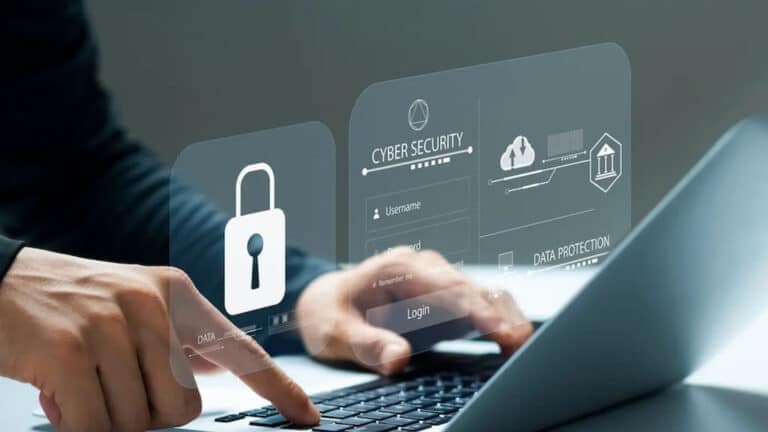Sponsored
How colleges should address pro-Palestinian demonstrations
Learn how universities can maintain safety and order during pro-Palestinian campus protests while ensuring free speech and preventing violence or disruptions.

Just a heads up, if you buy something through our links, we may get a small share of the sale. It’s one of the ways we keep the lights on here. Click here for more.
Freedom of speech is a fundamental constitutional right. However, when it comes to protests, this right is often falsely linked with the behavior of violent demonstrators engaging in illegal activities.
Peaceful demonstrators should never be blamed for the actions of violent agitators masquerading as protesters.
Simultaneously, violent and unlawful actions in the name of a political cause cannot hide behind First Amendment protections.
Recent pro-Palestinian demonstrations on college campuses and beyond have led to violent attacks, blocked roads, bridges, and airports, canceled classes and graduations, and brought campus activities to a halt at dozens of major universities.
These acts cannot be tolerated, nor should campuses reward them by ceding to any demands made. However, campuses must recognize their obligation to protect free speech even if the words might be offensive.
Universities in the US face a major dilemma: Should they give in to student activists and shut down the campus or listen to university donors and expel these students?
Freedom of expression doesn’t have to end in violence or a university shutting down; colleges can address pro-Palestinian demonstrations with the resolutions below:
Free speech zones in major locations

Both sides deserve to peacefully express their views in prominent university locations, such as campus entrances, significant administration buildings, and other key locations.
However, they cannot do so in a way that disrupts campus functioning, including blocking roadways or building access.
The content of speech is immaterial. Both pro-Palestine and pro-Israel demonstrators deserve to have their voices heard in a lawful, peaceful manner.
Campus authorities must inform everyone that both sides can safely voice their opinions about the issue without engaging in violent actions.
Zero tolerance for violence
Violent acts by student protesters should never be tolerated as they violate the rights of innocent passersby and the general public. Any form of violence, including harassment, attacks, and threats, is unacceptable.
It is intolerable for Jewish students to be harassed, as they have been by pro-Palestinian demonstrators. It is also inappropriate for students wearing Palestinian paraphernalia to be threatened or targeted.
Colleges can address this concern by arresting anyone committing violence, regardless of motivations.
Additionally, university authorities must inform the student body that anyone who threatens, attacks, or harasses lawful demonstrators will be punished. Punishment can include arrests and expulsion.
No collective punishment

When a student destroys property or commits an act of violence, they must be punished individually. It’s not appropriate to use collective punishment to address the issue.
A group of demonstrators shouldn’t be held accountable simply because some members engaged in illegal acts.
Collective punishment runs afoul of the Eighth Amendment banning cruel and unusual punishment and also goes against the principle of individual agency—a core tenet of a democratic society.
Consequences for students who skip classes
Student activists must be allowed to have their views heard about Israel/Palestine without canceling classes.
Any student who skips classes or disrupts other students due to the protests should be disciplined or punished in the same way they would be if they skipped classes to go to the beach.
The university has the right to expel a student who continues to demonstrate and skip classes.
Colleges should act quickly
Protests must be allowed to occur in a lawful, non-disruptive, and peaceful manner. Although the number of pro-Israel demonstrators may be smaller, they must be afforded the same rights.
They should peacefully voice their thoughts or views without being bullied. When protesters violate other people’s rights through violence or harassment, colleges must react quickly.
They must take reasonable actions to prevent student activists from disrupting other students and shutting down the campus. However, authorities must be patient to avoid escalating problems.
Know that freedom of speech isn’t bullying (and bullying is not free speech)

In a culture increasingly dominated by so-called “trigger warnings,” it is critical to note that expressing a controversial or even offensive point of view is not the same as bullying.
However, there is a fine line between voicing your thoughts on an issue and directing negative thoughts or hate speech at a particular individual or student.
When a specific student is individually targeted, called names, or threatened, that crosses a clear line and must not be tolerated. Students guilty of bullying must be disciplined or face prosecution if the bullying reaches a more troubling level.
Colleges must be consistent
Consistency is key to effectively addressing pro-Palestinian demonstrations on campuses.
Pro-Palestinian demonstrators must be treated no differently from pro-Israel demonstrators, BLM demonstrators, MAGA demonstrators, and any other demonstrator provided the actions are lawful and nonviolent.
The first step a university can take is to publish an announcement detailing the consequences of engaging in violent or unlawful acts associated with any form of protest.
All students must also be treated fairly, regardless of their political opinions. Punishment should be based on actions taken, not words said. Most importantly, universities must be consistent with their rules every time.
Have any thoughts on this? Drop us a line below in the comments, or carry the discussion to our Twitter or Facebook.
Editors’ Recommendations:
Disclosure: This is a sponsored post. However, our opinions, reviews, and other editorial content are not influenced by the sponsorship and remain objective.



































